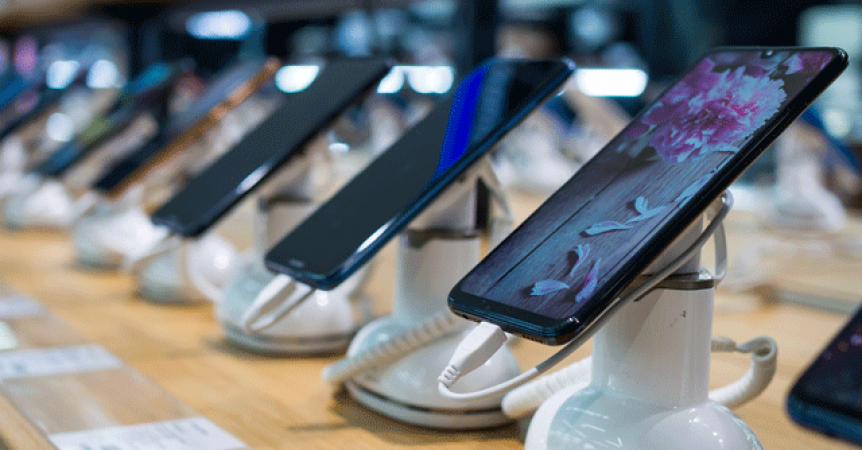
The mobile retail industry is experiencing a significant uptick in demand as consumers increasingly seek the latest and most advanced smartphones. Mobile retailers, eager to meet this demand, are actively engaging with handset companies in negotiations to lower the prices of their devices.
As technology evolves, consumers are consistently looking for smartphones with enhanced features, improved capabilities, and the latest innovations. This surge in demand has created a competitive environment among mobile retailers, each vying to offer the most attractive and affordable options to their customers.
The rapid evolution of smartphones has become a driving force behind consumer choices. From high-quality cameras to powerful processors, consumers are demanding devices that cater to their diverse needs, ranging from photography enthusiasts to gaming aficionados.
The global pandemic has further accelerated the reliance on technology, making smartphones an indispensable part of daily life. Whether for remote work, virtual socializing, or online learning, the need for advanced handsets has intensified.
While the demand for smartphones is soaring, mobile retailers face challenges in meeting customer expectations, particularly in terms of pricing. The competitive market requires retailers to balance quality, features, and cost-effectiveness to stay ahead.
Mobile retailers are in a constant juggling act, attempting to strike the right balance between offering high-quality smartphones and maintaining affordability. This delicate equilibrium is crucial for customer satisfaction and brand loyalty.
With a plethora of options available, the smartphone market is saturated, making consumers more price-sensitive. Mobile retailers are, therefore, under pressure to negotiate favorable terms with handset companies to ensure competitive pricing.
To address the challenges posed by market dynamics, mobile retailers are actively engaging in negotiations with handset companies. These discussions revolve around securing better deals and discounts to enable retailers to offer smartphones at more attractive price points.
One strategy employed by mobile retailers is to negotiate bulk discounts based on volume purchases. By committing to significant quantities of handsets, retailers aim to secure lower unit prices, allowing them to pass on the savings to customers.
Collaborative marketing initiatives between mobile retailers and handset companies are becoming more prevalent. These initiatives involve joint promotional activities and marketing campaigns, contributing to reduced marketing costs and, subsequently, lower overall prices for consumers.
As a result of these negotiations, consumers can anticipate a positive impact on the pricing of smartphones. Mobile retailers, armed with better deals from handset companies, are poised to offer a wider range of affordable options to tech-savvy consumers.
The outcome of these negotiations is a win-win situation for both mobile retailers and consumers. Retailers can enhance their product offerings, and consumers can enjoy a broader selection of advanced smartphones at more budget-friendly prices.
Lower smartphone prices contribute to democratizing access to technology, ensuring that a broader segment of the population can benefit from the latest advancements. This not only satisfies consumer needs but also aligns with the broader goal of bridging the digital divide.
As mobile retailers continue to navigate the evolving landscape, several trends are emerging that will shape the industry's future.
The trend of offering refurbished smartphones is gaining traction. Mobile retailers are exploring partnerships with manufacturers to provide certified refurbished devices, catering to budget-conscious consumers.
The surge in online shopping has prompted mobile retailers to focus on strengthening their presence on e-commerce platforms. This shift enables retailers to reach a wider audience and streamline the purchasing process.
To stand out in a crowded market, mobile retailers are exploring options for customization and personalization. This trend allows consumers to tailor their smartphones to their preferences, creating a unique and personalized user experience.
In conclusion, the current landscape of the mobile retail industry reflects a delicate dance between rising consumer demand and the challenges faced by retailers in meeting these expectations. Negotiations with handset companies, coupled with innovative strategies, are paving the way for affordable and accessible technology for consumers worldwide.
UNESCO Recognizes Gujarat's Garba Dance as Intangible Cultural Heritage
Bullet Train Set to Roll in 3-Yrs; Ayodhya Airport to Open by Dec End: Jyotiraditya Scindia
Uttarakhand Global Investors Summit: PM Highlights 'Vocal for Local, Local for Global'